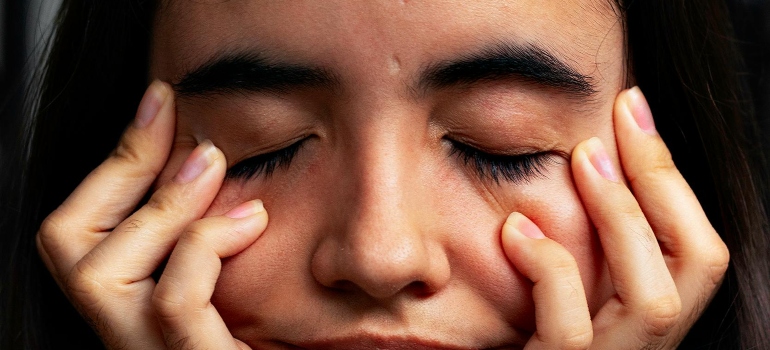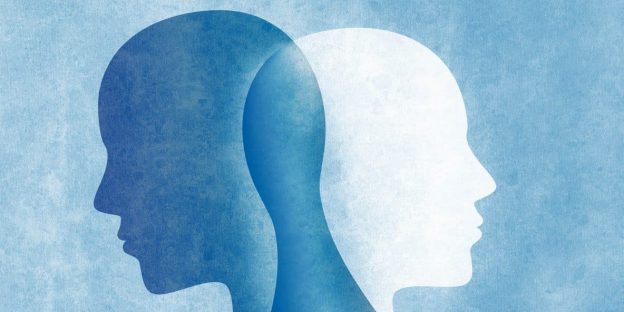Bipolar disorder and alcohol use often go hand in hand, creating challenges for many individuals. Bipolar disorder involves intense mood swings that range from high-energy manic episodes to low, depressive states. Alcohol misuse is a separate issue but can become a way for people to cope with these extreme mood changes. Unfortunately, this combination can lead to serious consequences for mental and physical health. Understanding how these two conditions interact is important because their connection is more common than many people realize. In this article, you’ll learn about the risks, why it’s difficult to manage both, and how to find help for yourself or someone you care about. If you or a loved one is struggling, consider seeking support from Harmony Ridge Recovery Center WV, which specializes in addressing both mental health and addiction challenges.

Understanding the Relationship Between Bipolar Disorder and Alcohol Addiction
Bipolar disorder and alcohol use disorder are closely linked, and this connection can lead to serious challenges. People with bipolar disorder often experience extreme mood swings, including manic highs and depressive lows. These intense emotional shifts can make daily life overwhelming. Alcohol may seem like an easy way to cope, especially during tough moments. For example, someone might drink to calm manic energy or numb depressive feelings. However, alcohol often worsens the symptoms of bipolar disorder. It can make manic episodes more unpredictable and depressive periods deeper.
Studies show that people with bipolar disorder are more likely to misuse alcohol than the general population. This behavior is known as self-medication, where alcohol is used to manage emotions or stress. Unfortunately, alcohol interferes with how the brain works and disrupts the balance needed to manage bipolar disorder. It can also reduce the effectiveness of medications prescribed to treat mood symptoms.
Over time, alcohol use can create a harmful cycle. It intensifies mood swings and makes it harder to make healthy decisions. This can lead to more alcohol misuse, making it even tougher to manage bipolar disorder. Understanding this relationship is the first step toward breaking the cycle.
When both conditions occur together, treatment becomes more complex. Experts recommend integrated care that addresses both bipolar disorder and alcohol misuse at the same time. With the right support, it’s possible to find healthier ways to cope. Recognizing the connection between bipolar disorder and alcohol is key to finding solutions that help individuals regain balance and stability in their lives.

How Bipolar Disorder Affects Decision-Making
Bipolar disorder can significantly influence how people make decisions. Mood swings, whether manic or depressive, often play a major role in this process. These changes in mood can lead to impulsive or risky behavior that affects personal, financial, and social aspects of life. Understanding how bipolar disorder impacts decision-making is important for managing its challenges.
Impulsivity During Manic Episodes
Manic episodes are periods of high energy and excitement. During this time, people often feel unstoppable and overly confident. This mindset can lead to impulsive choices, like overspending, making risky investments, or engaging in unsafe activities. The heightened emotions in mania can make it harder to think through consequences before acting.
Difficulty with Focus in Depressive States
During depressive episodes, decision-making can slow down. Low energy and feelings of hopelessness may lead to indecision or procrastination. Even small choices, like deciding what to eat, can feel overwhelming. This can further impact daily life, work responsibilities, and relationships.
How Both States Impact Judgment
Both mania and depression affect how the brain processes information. Mania may lead to overconfidence, while depression might cause self-doubt. This can result in choices that do not align with long-term goals or well-being. For example, someone may quit a stable job during mania or avoid opportunities due to depression.
Breaking the Cycle
Recognizing how mood swings affect your decisions is the first step toward improvement. Therapy and medications can help stabilize moods, making it easier to think clearly. Working with a mental health professional gives you tools to pause, reflect, and make better choices. If you have PEIA insurance rehab coverage, it can help you access treatment options that support your mental health and recovery journey, making it easier to get the care you need.

Risks of Combining Bipolar Disorder and Alcohol
Combining bipolar disorder and alcohol use creates a dangerous mix. Alcohol can worsen mood swings, disrupt treatment, and increase health risks. In fact, how does alcohol affect bipolar people? It can trigger manic or depressive episodes, making it harder to stabilize mood. This disruption can also interfere with medications, reducing their effectiveness. Understanding these risks is key to making healthier choices and managing both conditions effectively.
Worsening Mood Swings
Alcohol directly affects the brain, which is already sensitive in people with bipolar disorder. Drinking can intensify manic episodes, making them more unpredictable and risky. During depressive episodes, alcohol acts as a depressant, making feelings of sadness or hopelessness even worse. This can lead to a cycle of drinking and emotional instability that becomes hard to break.
Interference with Medications
Many people with bipolar disorder rely on medications to stabilize their mood. Alcohol can interfere with how these medications work, either reducing their effectiveness or causing harmful side effects. For example, mixing alcohol with mood stabilizers can increase drowsiness, dizziness, or other health issues. This makes managing bipolar symptoms more challenging.
Increased Risk of Addiction
People with bipolar disorder are more likely to develop alcohol dependence. Initially, alcohol may seem like a way to cope with stress, anxiety, or mood swings. It might provide temporary relief from the intense emotional highs and lows that are characteristic of bipolar disorder. However, regular alcohol use can lead to addiction. Over time, individuals may rely on alcohol more frequently to manage their emotions, which can worsen both the bipolar symptoms and the alcohol dependency.
Impact on Relationships and Responsibilities
Alcohol misuse often damages relationships with family and friends, as it can lead to arguments, misunderstandings, and a lack of trust. Over time, these strained relationships can become harder to repair, especially if alcohol is used as a way to cope with emotional pain. It can also lead to poor performance at work or school, as alcohol impairs focus, productivity, and decision-making.
Greater Risk of Harmful Behavior
Combining alcohol and bipolar disorder significantly increases the risk of impulsive or harmful actions. During manic episodes, individuals may engage in reckless behavior, such as spending sprees, unsafe sexual activity, or dangerous driving. Alcohol can amplify these impulses, making it more difficult to control actions. A combination of these two conditions heightens the likelihood of accidents or self-harm, as alcohol lowers inhibitions and impairs judgment.
The Dangerous Cycle: Bipolar Disorder and Alcohol Dependency
Bipolar disorder and alcohol dependency often create a dangerous cycle that’s tough to break. Each condition fuels the other, making life more difficult. People with bipolar disorder may turn to alcohol as a way to cope with intense mood swings. For example, they might drink during manic episodes to slow down or during depressive phases to feel numb. However, alcohol disrupts brain chemistry, which worsens mood swings and increases instability. Can alcohol make BPD worse? Yes, it can, as alcohol exacerbates symptoms and intensifies emotional volatility.
Alcohol also reduces the effectiveness of medications used to treat bipolar disorder. This can lead to unmanageable symptoms and a higher risk of relapse. As symptoms worsen, some individuals may drink more to find temporary relief. Over time, this pattern can lead to dependency on alcohol, making treatment for bipolar disorder even harder.
The effects of this cycle extend beyond mental health. Alcohol dependency can damage physical health, leading to liver disease, heart issues, or weakened immunity. It can also harm relationships, work performance, and financial stability. For someone with bipolar disorder, these additional stressors increase emotional strain, further fueling the cycle.
Research shows that around 46% of people with bipolar disorder struggle with substance use disorders, including alcohol dependency. This high overlap highlights the need for specialized care. Integrated treatment programs, offered at a residential treatment center in West Virginia, can address both conditions simultaneously. Therapy, medication management, and support groups provide essential tools to regain control and break free from this harmful cycle.

Seeking Help for Bipolar Disorder and Alcohol Use
Dealing with alcohol use and bipolar disorder can feel overwhelming. However, taking the first step toward getting help can make a huge difference. There are effective treatments and resources available that focus on managing both conditions together.
- Talk to a Healthcare Professional: Start by speaking with a doctor or mental health professional. They can assess your symptoms and recommend a treatment plan tailored to your needs. This might include therapy, medication, or a combination of both. If necessary, they may suggest a partial hospitalization program in West Virginia, which offers structured support for individuals dealing with both mental health and addiction issues.
- Consider Therapy Options: Therapy is a key part of recovery for many people. Cognitive-behavioral therapy (CBT) helps you identify harmful thought patterns and behaviors. It also teaches healthier ways to cope with stress or emotional triggers.
- Look for Integrated Treatment Programs: Integrated treatment programs address bipolar disorder and alcohol use at the same time. These programs combine mental health care with addiction support, helping you tackle both challenges together. They may include therapy, group counseling, and medical supervision for withdrawal if needed.
- Build a Support Network: Recovery is easier with support from others. Consider joining support groups or groups specifically for people with co-occurring disorders. You can also lean on friends and family who understand your journey.
- Focus on Lifestyle Changes: Small lifestyle changes can complement professional treatment. Prioritize regular sleep, eat nutritious meals, and engage in light physical activity. Avoid triggers that make you want to drink, such as certain social settings.

How to Support Someone Facing Both Bipolar Disorder and Alcohol Abuse
Supporting someone with alcohol abuse and bipolar disorder requires patience, empathy, and understanding. These challenges often overlap and make recovery harder. To start, educate yourself about both conditions. Understanding their symptoms and how they interact helps you offer informed support. Encourage your loved one to seek professional treatment. Therapists, doctors, and treatment programs, including holistic therapy for addiction, can address both issues effectively. Offer help with finding resources or attending appointments if they feel overwhelmed.
Listen actively when they want to share their struggles. Let them express their feelings without fear of judgment. Use phrases like “I’m here for you” to show your support. Avoid enabling harmful behaviors. For example, don’t cover their drinking or take on responsibilities they should manage. Setting boundaries is key to supporting them without harming yourself.
Stay consistent in your efforts. Recovery is not a straight path, and setbacks may happen. Be patient during these moments. Let them know you believe in their ability to overcome challenges. At the same time, focus on your well-being. Supporting someone through this process can be emotionally draining. Make time for self-care and reach out to friends, family, or support groups when needed. If they are a veteran, consider exploring veterans alcohol rehab programs that can offer tailored care. Remind them that change is possible. Even small steps, like talking to a therapist or reducing alcohol use, are progress. Your support can encourage them to keep moving forward. Recovery takes time, but your presence can make a meaningful difference.

Managing Bipolar Disorder and Alcohol Misuse for a Healthier Future
Bipolar disorder and alcoholism are complex conditions that often go hand in hand, making it difficult for those affected to find balance. However, with the right support, treatment, and understanding, recovery is possible. It’s important to seek professional help, whether through therapy, medication, or integrated treatment programs that address both issues. An alcohol rehab center in Charleston WV can offer specialized programs to support individuals struggling with both conditions. If you’re supporting someone, remember to educate yourself, encourage them to get help, and be there to listen without judgment. Set healthy boundaries while offering your support. Recovery takes time, and setbacks are part of the process, but with patience and consistency, progress is achievable. Both individuals and their loved ones can find hope and take positive steps forward with the right approach.















